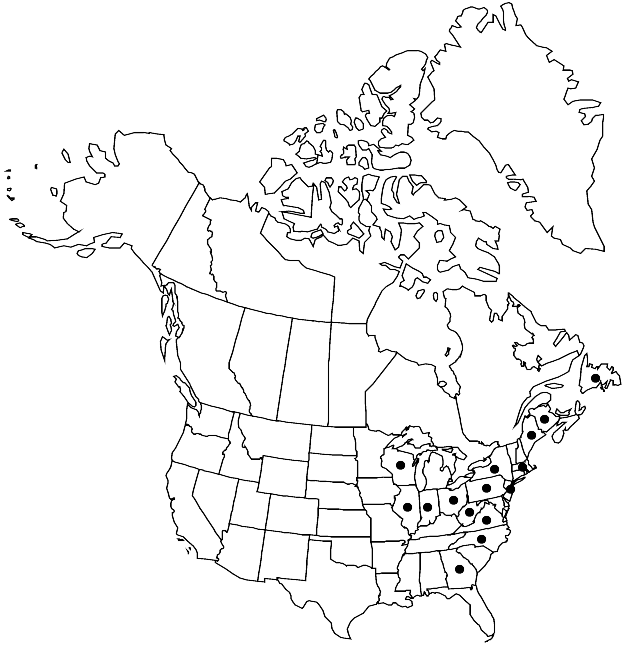Entodon brevisetus
Contr. Fl. Crypt. As., 253. 1873.
Plants in thin mats, yellow-green. Stems to 5 cm, subpinnate, branches terete-foliate. Leaves erect to spreading, oblong-lanceolate, slightly plicate, 1.2–2 mm; margins plane, subentire proximally, ± serrulate distally; apex slender acuminate; ecostate or costa double, short; alar region ± abruptly differentiated, 1-stratose, not reaching costa. Sexual condition autoicous. Seta yellow, 0.5–1.5 cm. Capsule cylindric, to 1.4–2 mm; annulus 3- or 4-seriate, persistent; operculum bluntly short-rostrate; exostome teeth reddish, external surface densely papillose throughout, not perforate; endostome segments densely papillose. Spores 16–21 µm.
Habitat: Bark at base of hardwood trees, logs, stumps, rock
Elevation: low to moderate elevations
Distribution

N.B., Nfld. and Labr. (Nfld.), Ga., Ill., Ind., Maine, Mass., N.J., N.Y., N.C., Ohio, Pa., Va., W.Va., Wis.
Discussion
Entodon brevisetus is an uncommon but widely dispersed species recognizable by its terete-foliate plants with slenderly acuminate leaves. The setae are yellow and the exostome teeth are densely papillose throughout. The endostome is sometimes adherent to the exostome teeth.
Selected References
None.